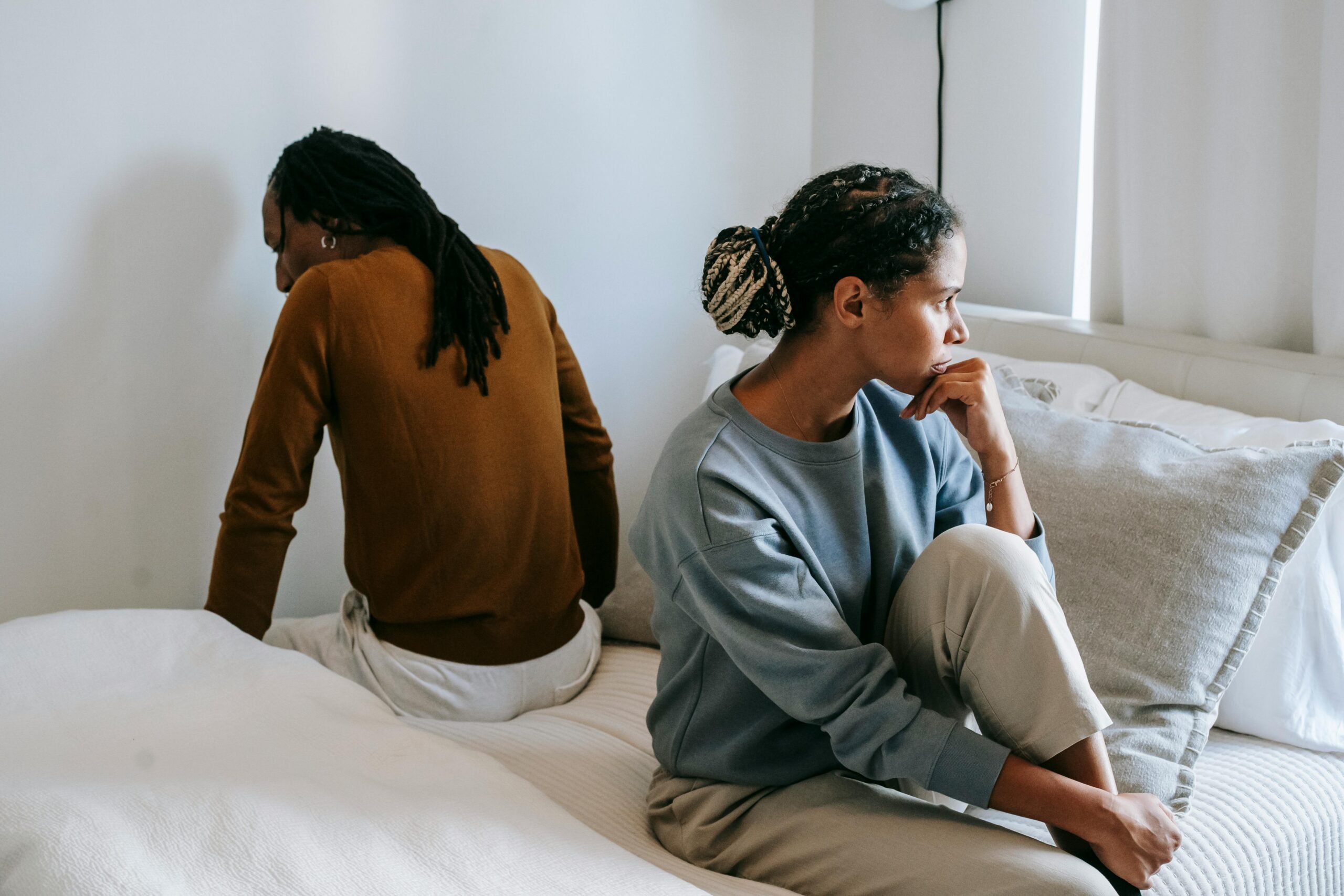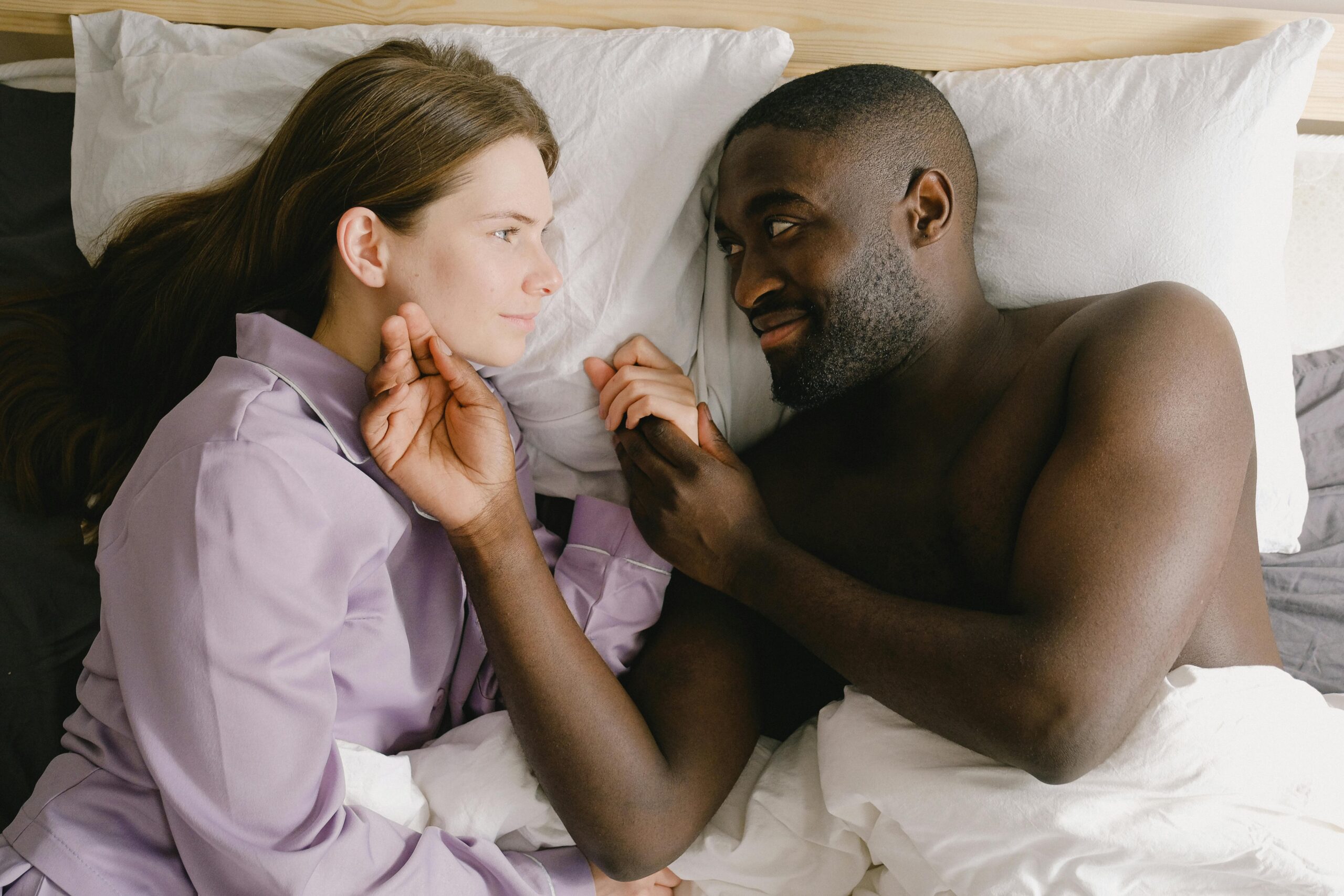
Sore vagina after sex: Why does my vagina hurt?
In this article
What's the lowdown?
Sex shouldn’t feel painful (this includes before, during, or after penetration)
If you’re experiencing vaginal dryness, lube is a totally normal and fun addition to sex (get some from Amazon here – affiliate link btw!)
There are many reasons why sex might hurt, categorised as superficial pain, deep pain, and psychological factors
If you’re experiencing painful sex, you can book an appointment with The Lowdown’s GPs for further advice
Vaginal pain during or after sex is way more common than you might think, affecting up to 7.5% of women and people with vaginas at some point in their lives.
Unsurprisingly, studies show that experiencing painful sex (dyspareunia) can be associated with poor sexual, relational, physical and mental health. So it’s super important to get help so you can go back to enjoying the pleasure of sex.
Here we’re going to take a closer look at what some of the causes of a sore vagina after sex are, when to seek medical advice and what treatments are available.
Reasons why your vagina could hurt after sex
There are a few reasons why you might have a sore vagina after sex. Here are the more common causes:
- Vigorous sex
- A lack of lubrication
- Skin conditions
- Medication
- Psychosexual causes
- Infections
- Medical conditions
Vigorous sex
Sometimes sore sex can simply be caused by a slightly more ‘passionate’ session. A lot of pressure, friction or prolonged sex can cause pain or discomfort in the vagina after penetration.
This can also be the case when using sex toys – they require just as much lube as the real deal to avoid causing inflammation and soreness. Talking of lube…
A lack of lubrication
If you aren’t fully aroused when you attempt to have sex it can be painful. This is normal, and may be due to too little foreplay.
Using lube to reduce friction can make sex more fun and comfortable!
Get Yes lube from Amazon.
Find out more about why you should use lubricant.
Skin conditions
Irritant or allergic Contact Dermatitis
This can lead to itching and pain during sex, triggered by chemicals or allergens in products used for the skin. In some individuals’, chemicals cause an immune response leading to itching and redness.
Common products that can trigger this include baby wipes, lubricants and feminine hygiene products, topical medications and latex in condoms.
Lichen Sclerosis
Lichen Sclerosis is a condition which can cause itchy white patches on the vulva that can result in a burning sensation, tightness and scarring. This can make your vagina sore after or during sex.
Sperm allergy
Whilst rare, an allergic reaction to sperm can cause redness and burning in the vaginal area, typically 10-30 minutes after sex. This can be triggered at any point, from any sexual partner.
Medication
Your contraception
The contraceptive pill can also be associated with vaginal dryness and therefore a sore vagina after sex.
Progestogen-only pills (the mini pill) and other forms of progestogen only contraception are thought to cause vaginal dryness in some users because they do not contain oestrogen, the hormone responsible for blood flow to the vagina and pelvic area, particularly during arousal. This in turn affects vaginal lubrication and can cause painful sex.
However vaginal dryness has also been reported by users of combined contraception including the pill, hormonal coil (IUS) and vaginal ring.
Antidepressants
Some studies suggest antidepressants can lead to persistent vulva pain and lubrication problems.
Psychosexual causes
Vaginismus
Vaginismus is an involuntary tightening of the vaginal muscles which can cause difficulty and pain with penetration. This can be caused by stress around sexual contact, sometimes due to past experiences or bad relationships.
Infections
Thrush
The extremely common fungal infection thrush could cause a sore vagina, with other symptoms including the characteristic cottage cheese-like discharge and itching. Read more about the causes of thrush.
STIs
A sore vagina after sex can be a number one sign of an STI (for example chlamydia, gonorrhoea and herpes). Each can cause discomfort, pain, stinging sensations – another reason to keep on top of regular testing.
Pelvic Inflammatory Disease
Pelvic Inflammatory Disease (PID) is caused by infection and can lead to a deep pain due to inflammation of the pelvic organs. Untreated STIs are one of the most common causes of PID.
Medical conditions
If you have deep pain or soreness within the pelvic or vagina during sex, it could suggest a couple of different conditions.
Ovarian cysts
Ovarian cysts are fluid filled sacs within the ovaries, which often cause no symptoms and are completely harmless. However, in some cases they can rupture, which can be extremely painful and requires immediate medical attention. Ovarian cysts may cause pain during sex on the side of the affected ovary.
Endometriosis
Endometriosis is a condition where tissue similar to the lining of the womb starts to grow in other parts of the body. It can cause mild to excruciating pain up to 48 hours after sex.
This is due to inflammation and endometrial tissue that has grown in the pelvis, causing the uterus and vagina to be stretched and pulled during sex.
Is it normal to be sore after sex?
Nope, it’s not. Sex should not be uncomfortable.
And, because a sore vagina could have such a broad range of underlying causes, it’s important that you pay attention to any symptoms of pain or discomfort.
Medically speaking, the official definition of painful sex (dyspareunia) is when there’s recurrent or persistent pain before or after intercourse. But, the bottom line is, any sensation of pain in your vagina, vulva, pelvis or anywhere else is a sign that your body is telling you something is wrong and should not be ignored. This might include general soreness, stinging, sharp pain, pressure or any discomfort.
Please don’t worry about checking in with your GP if sore sex is a new symptom for you.
What counts as vaginal pain?
Anatomy 101: so the vulva refers to the entirety of the external genitals including the inner and outer labia, clitoris, vestibule of the vagina (vaginal opening) and urethra (where pee comes out).
Painful sex can be associated with the vulva, vagina, pelvic area and lower back. Depending on where the pain is felt, this can provide a clue to the diagnostic approach as well as treatment options.
Types of painful sex
There’s a few classifications of painful sex that might be causing your vagina to hurt:
- Superficial: Localised to vulva or vaginal entrance
- Deep: Inside the vagina or lower pelvis, often associated with deep penetration
- Primary dyspareunia: pain during sex since the start of sexual activity
- Secondary dyspareunia: pain occurs after some time of pain-free sex
You might also hear the term vulvodynia which can be associated with painful sex. However, the key difference is that this refers to vulval pain that can be triggered with or without sex (with no known cause).
Should I go to see my GP?
Yes. 100%. Vaginal soreness during or after sex is not a symptom that should have to be endured.
If you’re experiencing superficial pain, it’s likely that you will have a physical examination. Depending on the cause, treatment could involve antibiotics for an infection or steroid creams for skin irritation. If the root is a psychological one, this could involve therapy or counselling.
For pelvic pain / internal deep pain, your GP will probably refer you to a gynaecologist and arrange an ultrasound scan which can detect possible causes such as ovarian cysts.
Want to speak to someone about soreness during sex? Our resident Pelvic Physiotherapist is an expert in all things vaginal health from painful sex to endometriosis. Find out more about pelvic health physio and how we can help you today.

Our medical review process
This article has been medically reviewed for factual and up to date information by a Lowdown doctor.




